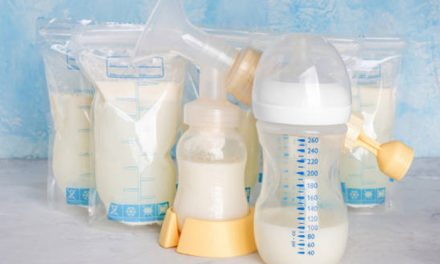Breastfeeding brings a flood of great, positive emotions that help you bond with your newborn. However, it can also come with its fair share of uncertainty and queries. Below are some common breastfeeding concerns that new mothers may have and their answers.
How Do I Know If My Baby Is Full Or Still Hungry After Feeding?
You’ve just fed your baby and put up your legs for a moment of rest when you hear your baby crying at the top of their lungs! In the first few weeks of breastfeeding your baby, it may seem like your baby is hungry all the time.
Knowing when your baby has had enough food isn’t simple, especially during the first few days of breastfeeding. It is why it is one of the most common newborn breastfeeding questions.
So, how do you know if your baby is getting enough milk or feeding properly? For this, you can try and understand your baby’s cues. If your little one is full, they’ll try to let you know by closing their mouth, slowing down or falling asleep in your arms, or relaxing their hands.
If your baby turns away from your breast or ignores it, it’s usually a surefire sign that your baby has had its fill! Similarly, there are several signs that a baby is hungry. One of the most obvious ways to communicate is by crying, but not all cries mean they’re hungry!
So, look out for other signs that the baby is hungry too. Your baby may put their fingers in their mouth, clench their hands as if grabbing at something, become fidgety and restless, or open and close their mouth as if they’re feeding.
My Baby Uses My Breasts As A Pacifier. Is It Okay?
Being concerned that your baby is not drinking enough milk instead of using your breasts as a pacifier is among common breastfeeding concerns. In short, there’s nothing wrong with your baby using your breasts to soothe themselves.
One of the most beautiful things about breastfeeding is that babies nurse for many reasons other than to get milk. Your baby is eager to feel close to you, enjoy the warmth and comfort you have to offer, and hear the rhythm of your heartbeat.
When your baby begins to use your breasts as pacifiers, they’re ready to wean early. It usually happens sometime around six and nine months, so your little one will start cutting back on feedings.
New mothers may have some nursing questions regarding passive nursing, where their babies latch at the breast but won’t pull any milk. If your baby is ready to wean, this is a self-soothing mechanism.
Self-soothers use their thumb, pacifier, or other things that give them a sense of security to comfort themselves when they need to sleep or are fussy, sick, or hurt. For self-soothers, breastfeeding is more of a comfort than a means to get food.
However, suppose your baby is not actively nursing after latching before six to nine months. In that case, it’s a good idea to consult your doctor or lactation specialist about these common breastfeeding concerns. If your baby doesn’t feed well, it can result in weight loss for the baby and lower your milk production.
My Baby Keeps Getting Distracted In Between The Feed
Does your little one suckle for a moment or two and then pull away to look around, only to repeat the same? You’re not alone, which is one of the most common breastfeeding concerns.
It’s likely your baby does this because they’re distracted by something new and exciting around them. Similar to infant milestones like teething orbiting, this easy distractibility is just a developmental phase. But, understandably, it can get quite frustrating.
This diversion may start anytime when your baby is about two months old and will peak between four to five months of age to address these newborn breastfeeding questions. Your baby will eventually settle down independently. If you are a new mother, you may refer to some tips on breastfeeding.
To deal with this issue, you can breastfeed your baby in a quiet room with no distractions like televisions or phones. Also, you can offer more feeds at night or when they just wake up from a nap. Breastfeeding your baby in a lying-down position can also help.
My Baby Sleeps Halfway Through While Feeding

There shall be times when your baby will fall asleep while breastfeeding.
When they’re just a few weeks old, your baby will do nothing but sleep! But sometimes, your baby sleeps so much throughout the day that you can’t seem to feed them well. You may have many nursing questions if your little one can’t seem to stay awake to complete a full breastfeeding session.
Don’t worry; your baby is just adjusting to life outside the cozy womb they were in, which can be tiring! If your baby has enough wet and dry diapers for their age and is putting on weight at a healthy pace, then there’s nothing wrong with having a couple of sleepy breastfeeding sessions.
Usually, falling asleep at the breast is no cause for concern. Many babies do that! A full tummy makes newborns tired, so falling asleep is a common reaction. Also, some babies may finish nursing quickly, so they may seem to fall asleep halfway through the breastfeeding session.
However, if there are signs that your baby is not getting enough milk, then you can gently try waking them up. For example, your baby may become sleepy when milk flow slows down. In this case, you can gently cup your breast and press down to increase the flow.
If you have tried all the techniques and your baby is not gaining weight or has symptoms like fever, rashes, difficulty breathing, or is difficult to rouse, address your common breastfeeding concerns to your doctor.
Final Words
These were a few common breastfeeding concerns that new mothers may have about their babies. Breastfeeding is truly magical, and it’s okay to have questions! Trust your instincts if something feels wrong, and consult a doctor.






